Charles E W Bean, Diaries, AWM38 3DRL 606/250/1 - 1917 - 1937 - Part 7
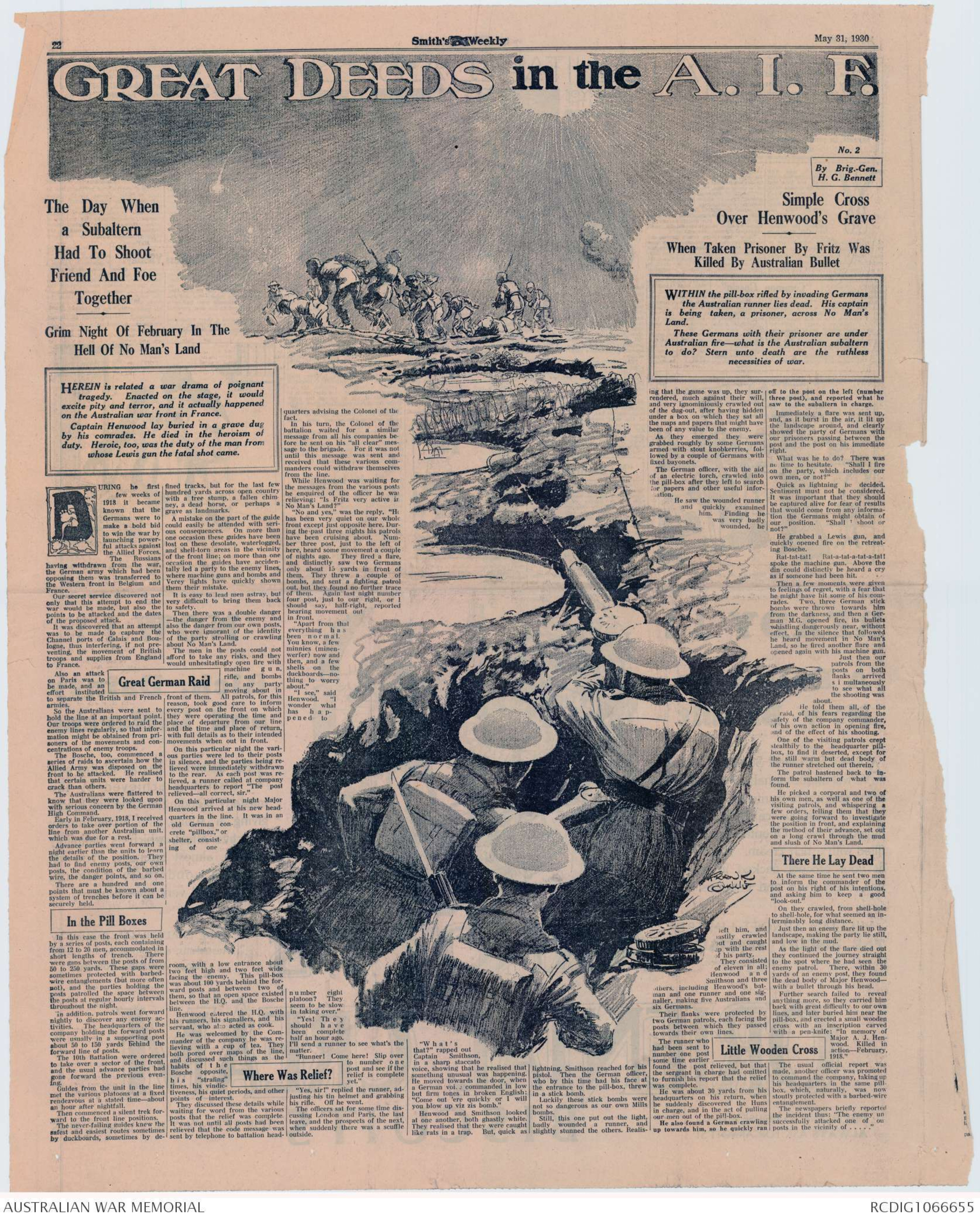
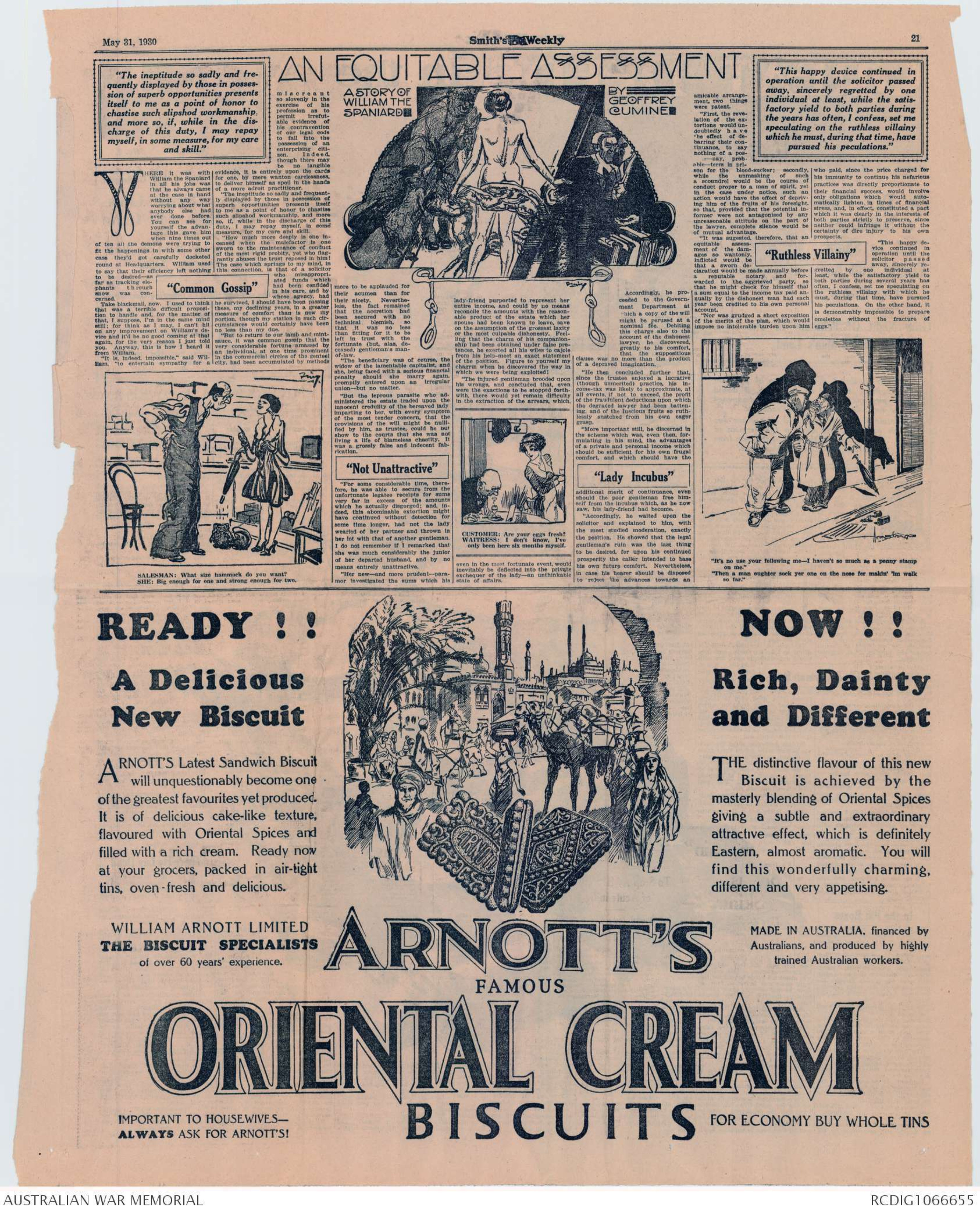
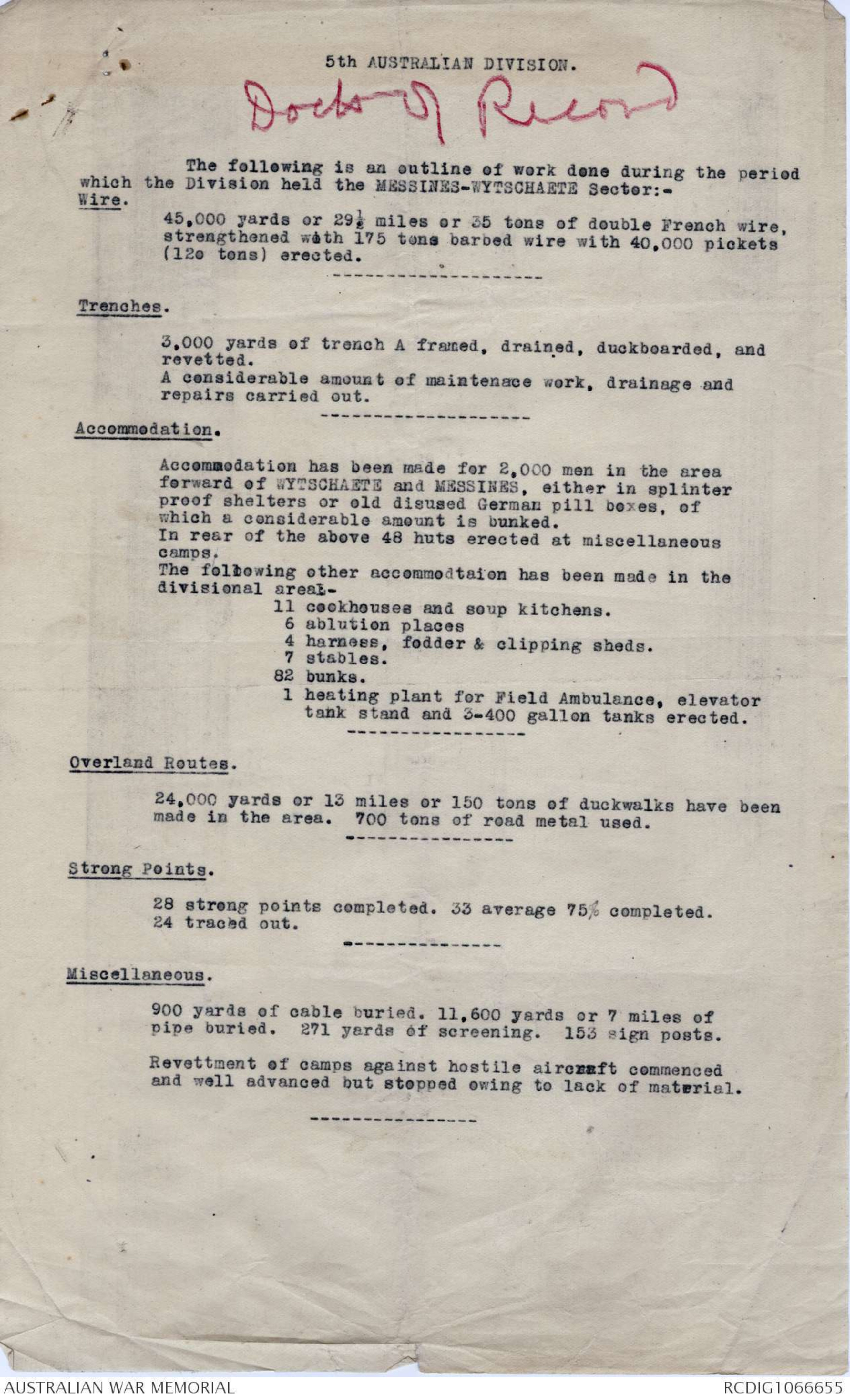
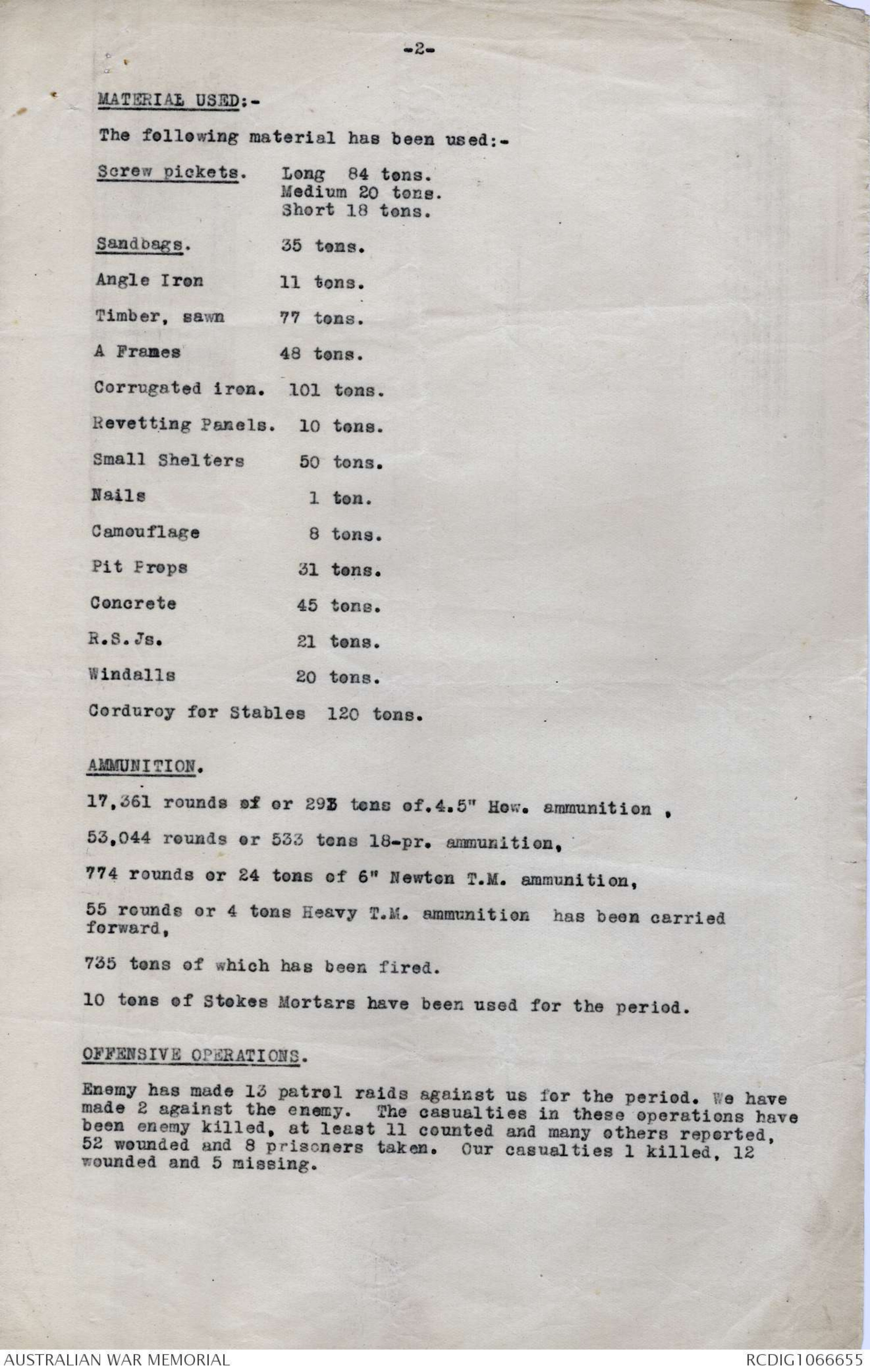
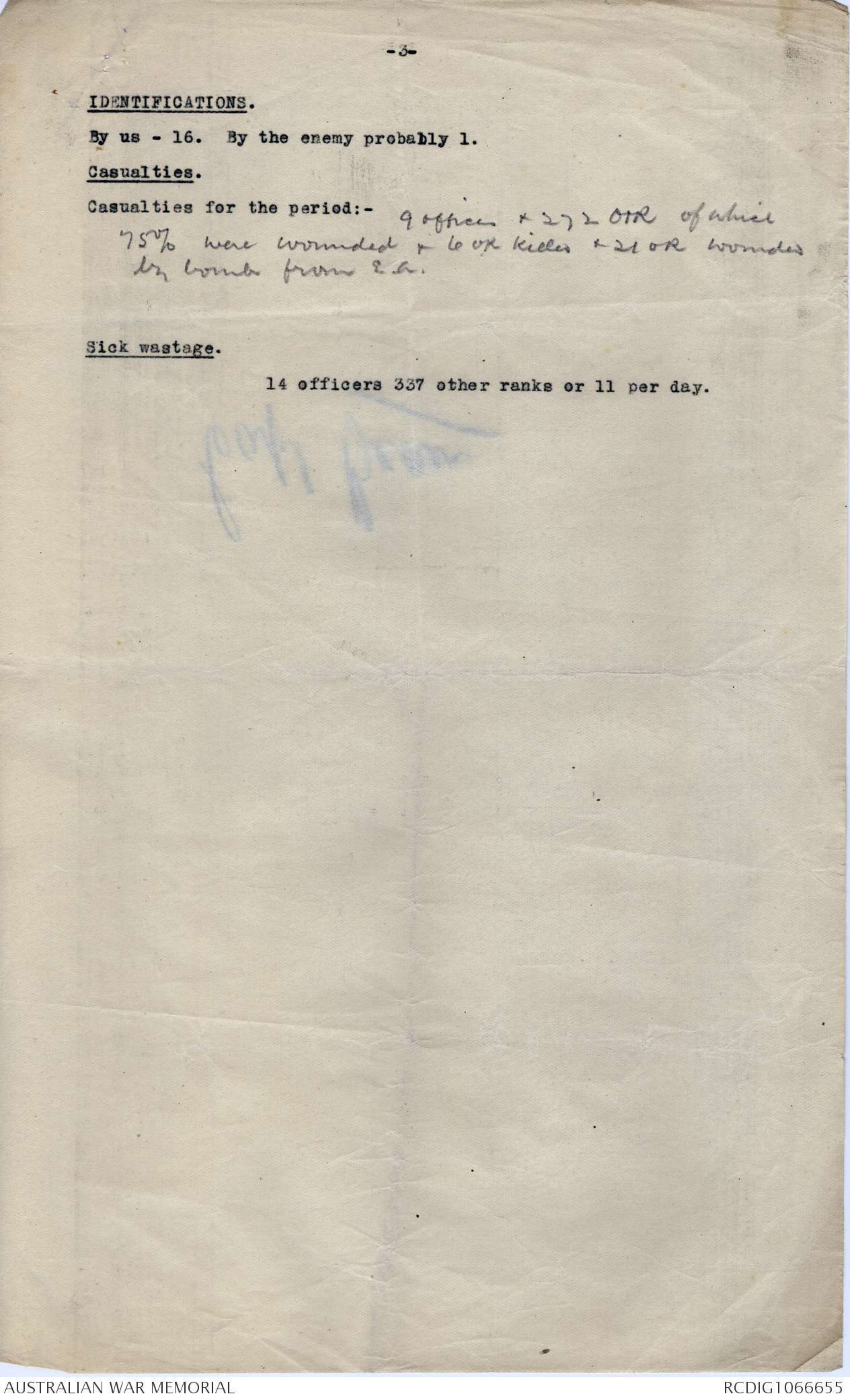
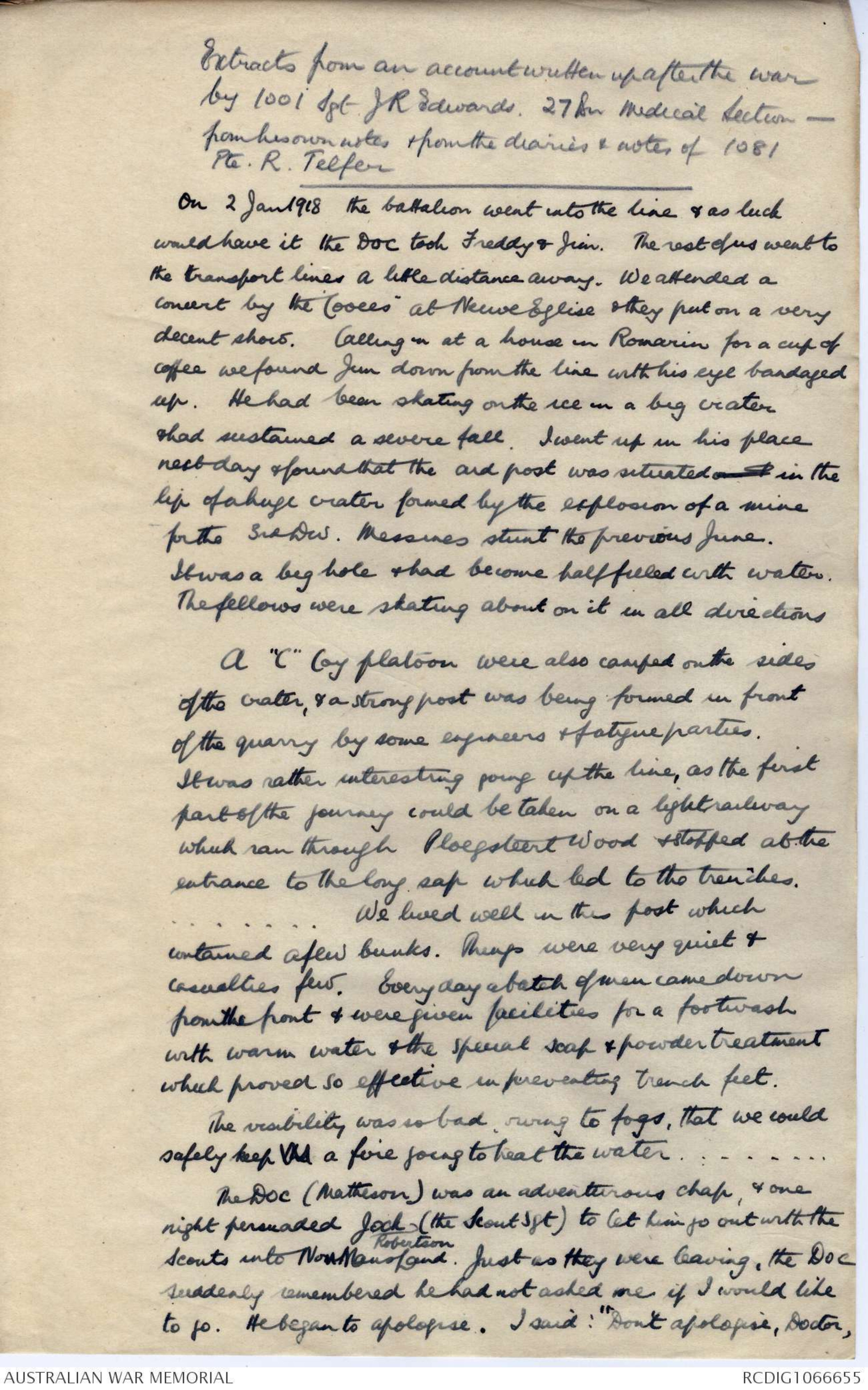
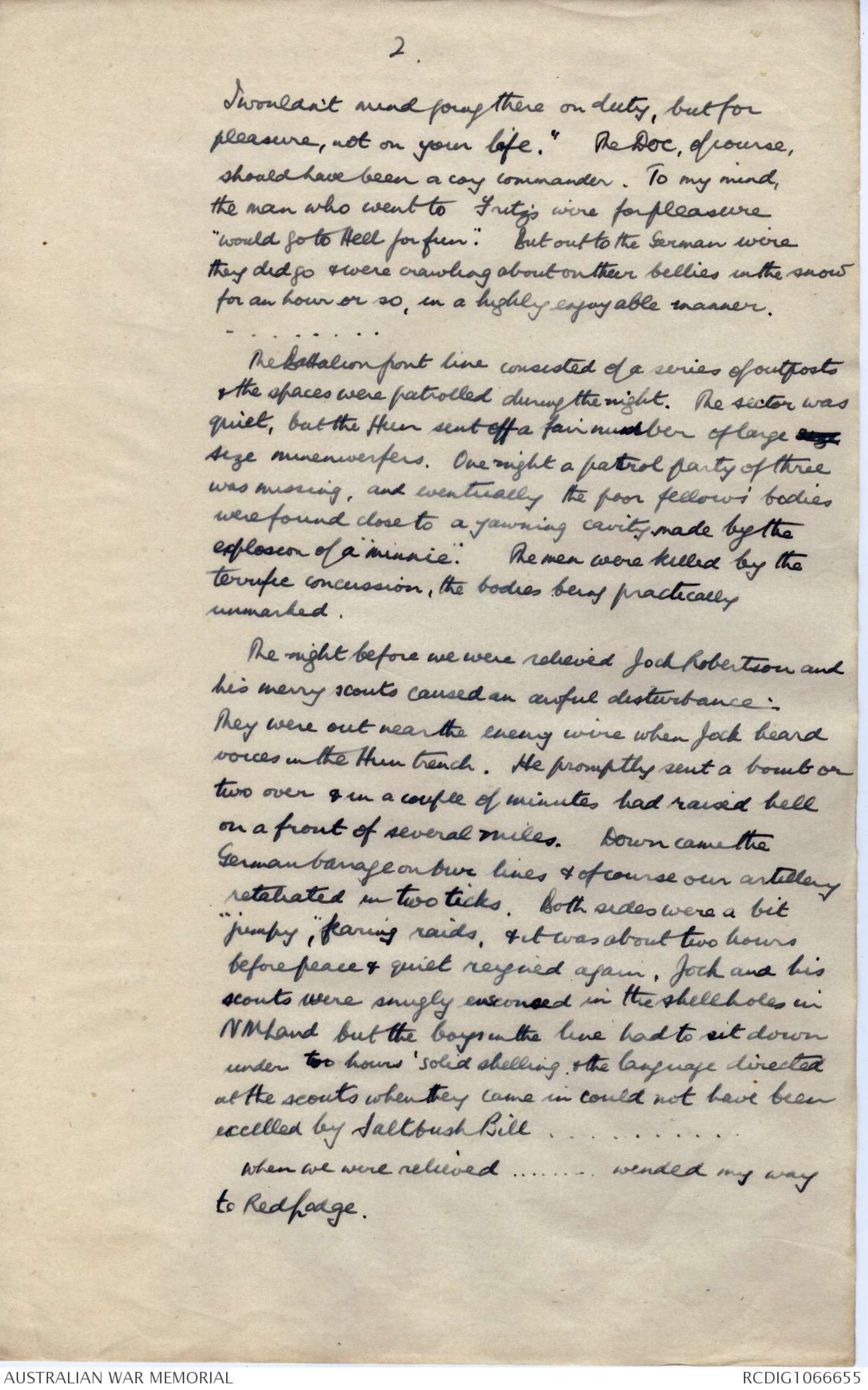
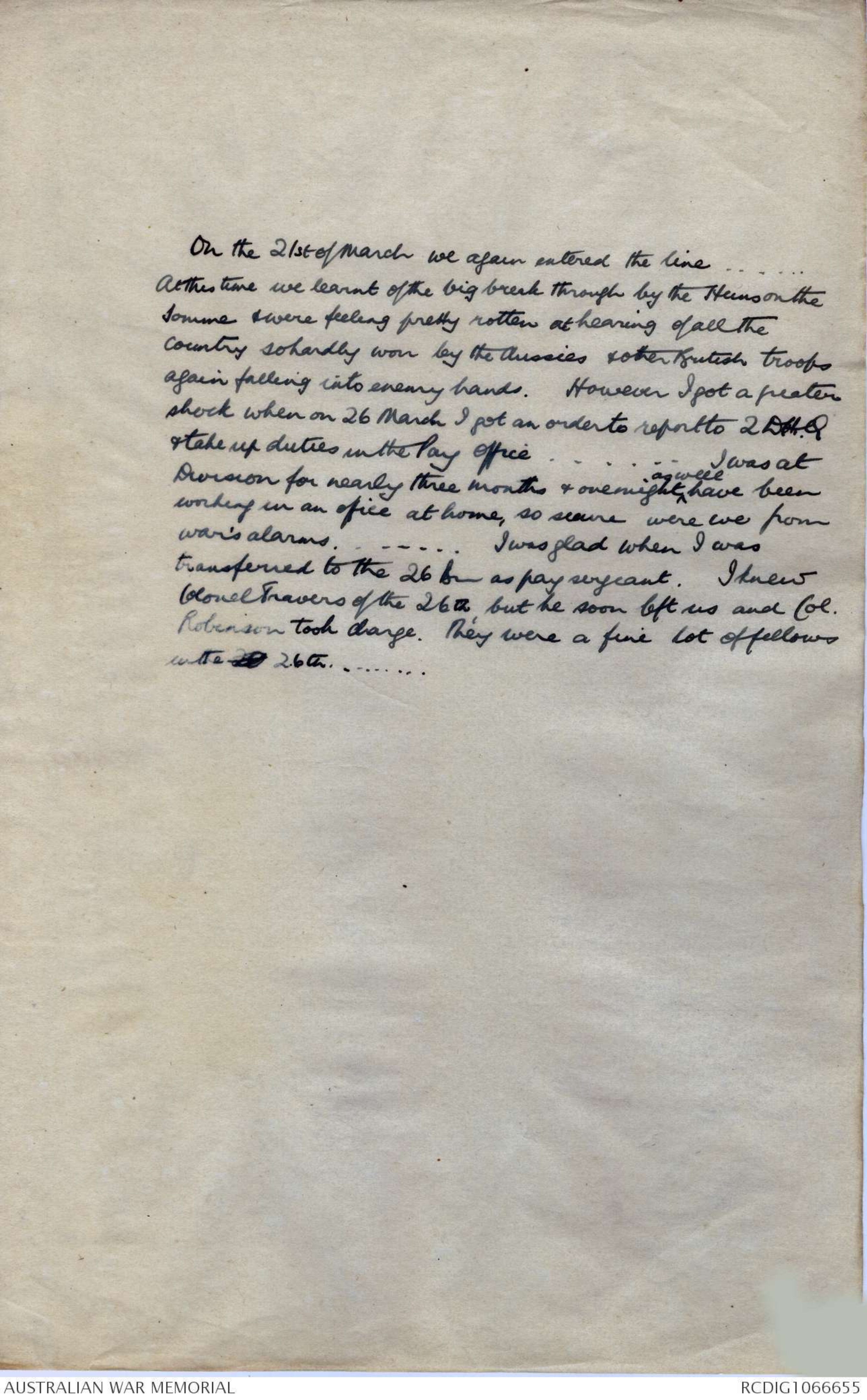
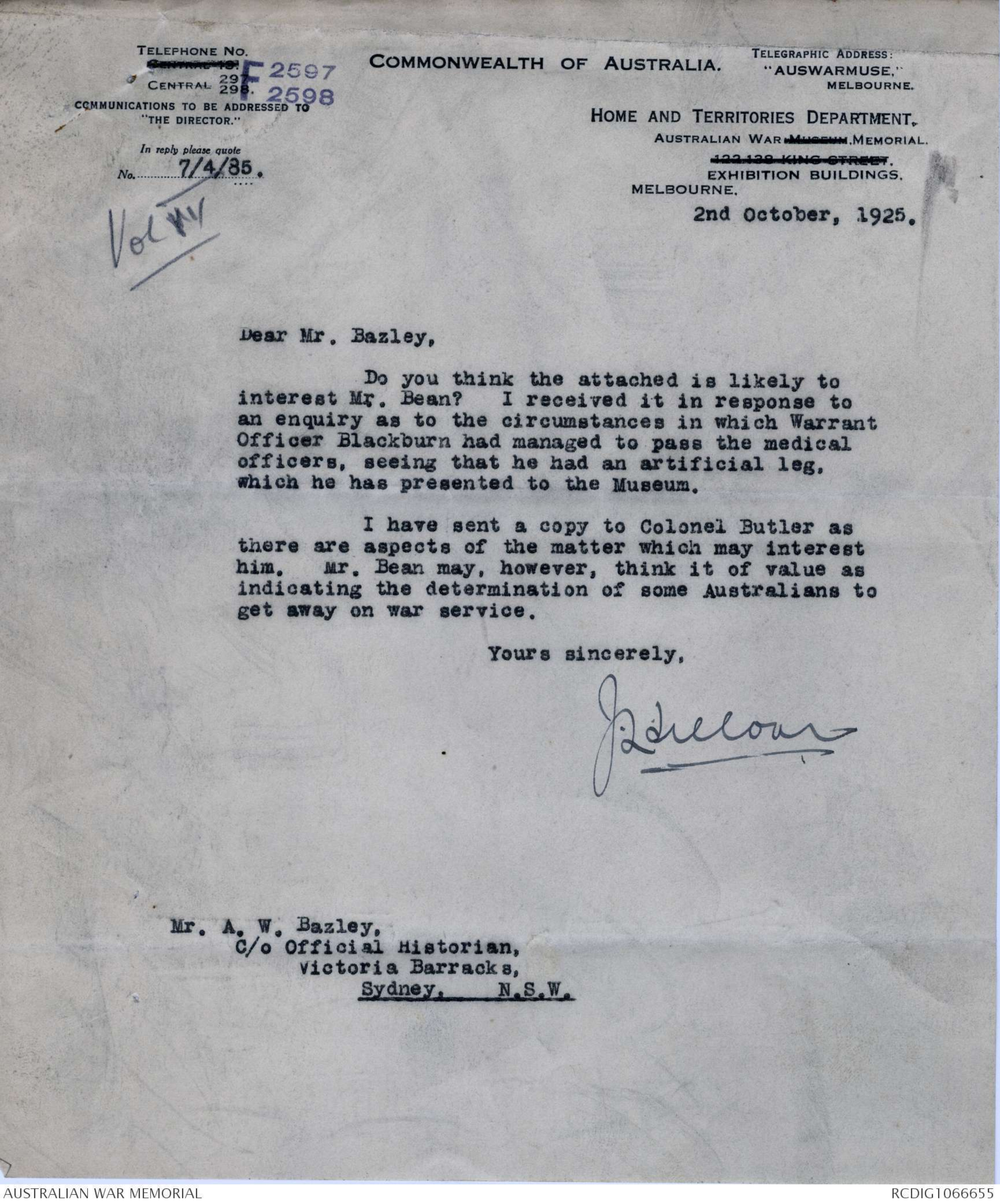
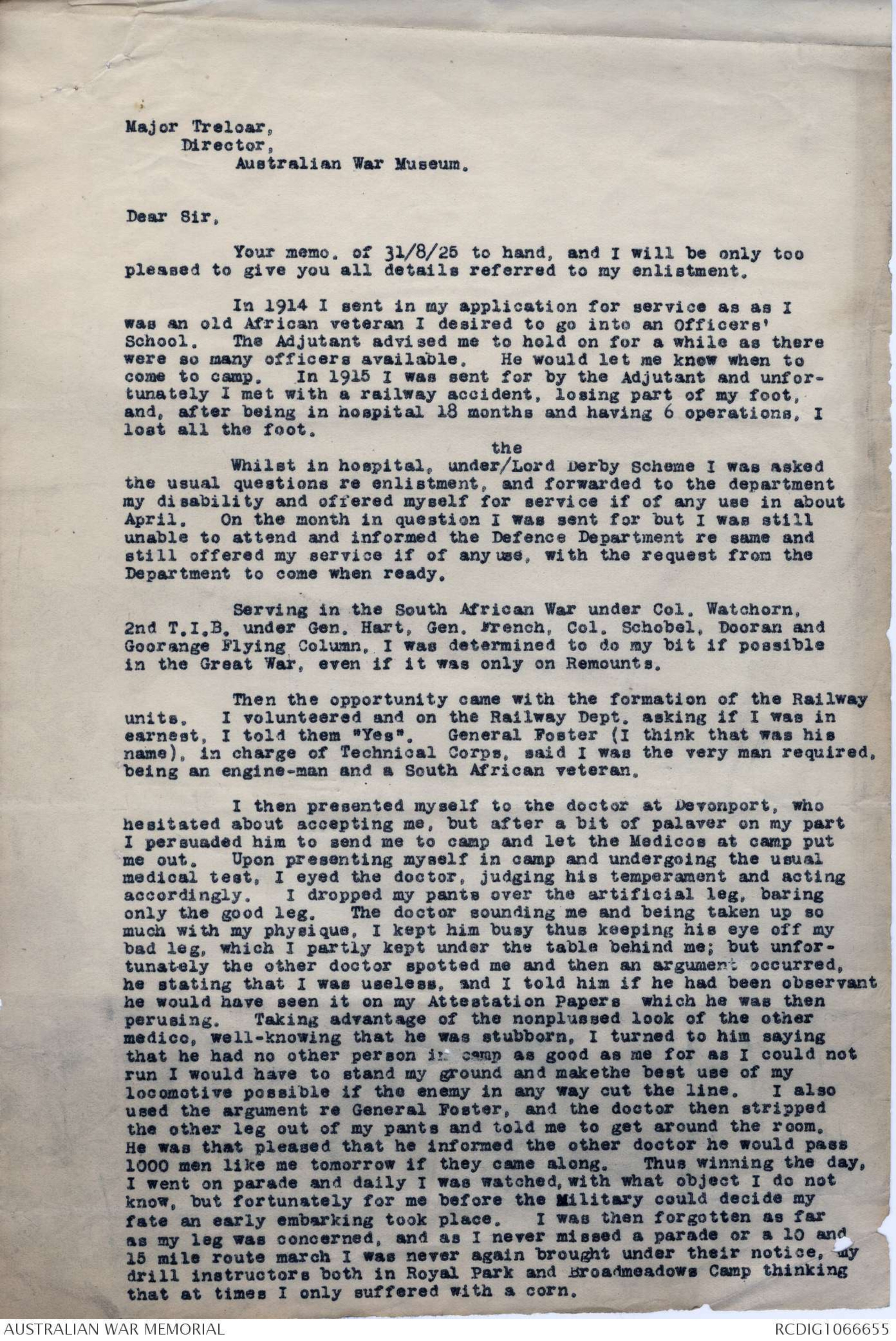
Smith's Weekly May 31, 1930
GREAT DEEDS in the A. I. F.
The Day When
a Subaltern
Had To Shoot
Friend And Foe
Together
Grim Night Of February In The
Hell Of No Man's Land
HEREIN is related a war drama of poignant
tragedy. Enacted on the stage, it would
excite pity and terror, and it actually happened
on the Australian war front in France.
Captain Henwood lay buried in a grave dug
by his comrades. He died in the heroism of
duty. Heroic, too, was the duty of the man from
whose Lewis gun the fatal shot came.
[* No.2
By Brig-Gen .
H.G. Bennett
Simple Cross
Over Henwood's Grave
when Taken Prisoner by Fritz Was
Killed By Australian Bullet
Within the pill-box rifled by invading Germans
the Australia runner lies dead. His captain
is being taken, a prisoner, across No Man's Land.
These Germans with their prisoners are under
Australian fire - what is the Australian subaltern
to do? Stern unto death are the
ruthless necessities of war.*]
DURING the first
few weeks of
1918 it became known that the
Germans were to
make a bold bid
to win the war by launching powerful
attacks against the Allied Forces.
The Russians
having withdrawn from the war,
the German army which had been
opposing them was transferred to the Western front in Belgium and
France.
Our secret service discovered not
only that this attempt to end the
war would be made, but also the
points to be attacked and the dates
of the proposed attack.
It was discovered that an attempt
was to be made to capture the
Channel ports of Calais and Boulogne,
thus interfering, if not preventing,
the movement of British
troops and supplies from England
to France.
Also an attack (* Great German Raid*)
on Paris was to
be made, and an
effort instituted to separate the British and French
armies.
So the Australians were sent
to hold the line at an important point.
Our troops were ordered to raid the
enemy lines regularly, so that information
might be obtained from prisoners
of the movements and concentrations
of enemy troops.
The Bosche, too, commenced
a series of raids to ascertain how the
Allied Army was disposed on the
front to be attacked. He realised
that certain units were harder to
crack that others.
The Australians were flattered to
know that they were looked upon
with serious concern by the German
High Command.
Early in February, 1918, I received
orders to take over portion of the
line from another Australian unit,
which was due for a rest.
Advance parties went forward a
night earlier than the units to learn
the details of the position. They
had to find enemy posts, our own
posts, the condition of the barbed
wire, the danger points, and so on.
There are a hundred and one
points that must be known about a
system of trenches before it can be
securely held.
In the Pill Boxes
In this case the front was held
by a series of posts, each containing
from 12 to 20 men, accommodated in
short lengths of trench. There
were gaps between the posts of from
50 to 250 yards. These gaps were
sometimes protected with barbed-wire
entanglements (but more often
not), and the parties holding the
posts patrolled the space between
the posts at regular hourly intervals
throughout the night.
In addition, the patrols went forward
nightly to discover any enemy activities.
The headquarters of the
company holding the forward posts
were usually in a supporting post
about 50 to 150 yards behind the
forward line of posts.
The 10th Battalion were ordered
to take over a sector of the front
and the usual advance parties had
gone forward the previous evening.
Guides from the unit in the line
met the various platoons at a fixed
rendezvous at a stated time - about
an hour after nightfall.
Then commenced a silent trek forward
to the front line positions.
The never-failing guides knew
the safest and easiest routes sometimes
by duckboards, sometimes by defined
tracks, but for the last few
hundred yards across open country
with a tree stump, a fallen chimney,
a dead horse, or perhaps a
grave as landmarks.
A mistake on the part of the guide
could easily be attended with serious
consequences.. On more than
one occasion these guides have been
lost on these desolate, waterlogged,
and shell-torn areas in the vicinity
of the front-line: on more than one
occasion the guides have accidentally
led to a party to the enemy lines,
where machine guns and bombs and
Verey lights have quickly shown
them their mistake.
It is easy to lead men astray, but
very difficult to bring them back
to safety.
Then there was a double danger
_ the danger from the enemy and
also the danger from our own posts,
who were ignorant of the identity
of the party strolling or crawling
about No Man's Land.
The men in the posts could not
afford to take any risks, and they
would unhesitatingly open fire with
machine gun,
rifle, and bombs
on any party
moving about in
front of them. All patrols, for this
reason, took good care to inform
every post on the front on which
they were operating the time and
place of departure from our line
and the time and place of return,
with full details as to their intended
movements when out in front.
On this particular night the various
parties were led to their posts
in silence, and the parties being relieved
were immediately withdrawn
to the rear. As each post was relieved.
a runner called at company
headquarters to report "The post
relieved - all correct, sir."
On this particular night Major
Henwood arrived at his new headquarters
in the line. It was in an
old German concrete
"pillbox," or
shelter, consisting of one
room, with a low entrance about
two feet high and two feet wide
facing the enemy. This pill-box
was about 100 yards behind the forward
posts and between two of
them, so that an open space existed
between the H.Q. and the Bosche
line.
Henwood entered the H.Q. with
his runners, his signallers, and his
servant, who also acted as cook.
He was welcomed by the Commander
of the company he was relieving
with a cup of tea. They
both pored over maps of the line,
and discussed such things as the
habits of the
Bosch opposite,
his " strafing"
times, his vindictiveness,
his quiet periods, and other
points of interest.
They discussed these details while
waiting for word from the various
posts that the relief was complete.
It was not until all posts had been
relieved that the code message was
sent by telephone to battalion headquarters
advising the Colonel of the
fact.
In his turn, the Colonel of the
battalion waited for a similar
message from all his companies before
he sent on his "all clear" message
to the brigade. For it was not
until this message was sent and
received that these various commanders
could withdraw themselves
from the line.
When Henwood was waiting for
the messages from the various posts
he enquired of the officer he was
relieving: "Is Fritz very active in
No Man's Land?"
"No and yes," was the reply. "He
has been very quiet on our whole
front except just opposite here. During
the past three nights his patrols
have been cruising about. Number
three post, just to the left of
here, heard some movement a couple
of nights ago. They fired a flare,
and distinctly saw two Germans
inly about 15 yards in front of
them. Again last night number
four post, just to our right, or I
should say, half-right, reported
hearing movement out
in front.
"Apart from that
everything has
been normal,
You know, a few
minnies ( minenwerfer)
now and
the, and a few
shells on the
duckboards - nothing
to worry
about."
"I see, " said
Henwood. "I
wonder what
has happened
to
number eight
platoon? They
seem to be slow
in taking over."
"Yes! They
should have
been complete
half an hour ago,
I'll send a runner to see what's the
matter.
"Runner! Come here! Slip over
to number one
post and see if the
relief is complete
yet."
"Yes, sir!" replied the runner adjusting
his tin helmet and grabbing
his rifle. Off he went.
The officers sat for some time discussing
London and Paris, the last
leave, and the prospects of the next,
when suddenly there was a scuffle
outside.
"What's
that!" rapped out
"Captain Smithson,
in a sharp staccato
voice, showing that he realised that
something unusual was happening.
He moved toward the door, when
a German voice commanded in low
but firm tones in broken English:
"Come out 'ere quickly or I will
blow you up viz ziz bomb."
Henwood and Smithson looked
at one another, both ghastly white.
They realised that they were caught
like rats in a trap. But, quick as
lightning, Smithson reached for his
pistol. Then the German officer,
who by tis time had his face at
the entrance to the pill-box, threw
in a stick bomb.
Luckily these stick bombs were
not so dangerous as our own Mills
bombs.
Still, this one put out the light,
badly wounded a runner, and
slightly stunned the others. Realising
that the game was up, they surrendered,
much against their will,
and very ignominiously crawled out
of the dug-out, after having hidden
under a box on which they sat all
the map sand papers that might have
been of any value to the enemy.
As they emerged they were
grabbed roughly by some Germans
armed with stout knobkerries, followed
by a couple of Germans with
fixed bayonets.
The German officer, with the aide
of an electric torch, crawled into
the pill-box after they left to search
for the papers and other useful information.
He saw the wounded runner
and quickly examined
him. finding he
was very badly
wounded, he
left him, and
hastily crawled
out and caught
up with the rest
of his party.
They consisted
of eleven in all"
Henwood and
Smithson and three
others, including Henwood's batman
and one runner and one signaller,
making five Australians and
six Germans.
Their flanks were protected by
two German patrols, each facing the
posts between which they had passed
towards their own lines.
The runner who
had been sent to
number one post
some time earlier
found the post relieved, but that
the sergeant in charge had omitted
to furnish his report that the relief
was complete.
He was about 30 yards from his
headquarters on his return, when
he suddenly discovered the Huns
in charge, and in the act of pulling
our men out of the pill-box.
He also found a German crawling
up towards his, so he quickly ran
off to the post on the left (number three
post), and reported what he
saw to the subaltern in charge.
Immediately a flare was sent up,
and, as it burst in the air, it lit up
the landscape around, and clearly
showed the party of Germans with
our prisoners passing between
the post and the post on his immediate
right.
What was he to do? There was
no time to hesitate. "Shall I fire
on the party , which included our
own men, or not?"
He grabbed a Lewis gun, and
quickly opened fire on the retreating
Bosche.
Rat-tat-tat! Rat-a-tat-a-tat-tat-a-tat!
spoke the machine gun. Above the
din could distinctly be heard a cry
as if someone had been hit.
Then a few moments were given
to feelings of regret, with a fear that
he might have hjot sone of his comrades.
Two, three German stick
bombs were thrown towards him
from the darkness, and then a German
M.G. opened fire, its bullets
whistling dangerously near, without
effect. In the silence that followed
he heard movement in No Man's
Land, so he fired another flare and
opened again with his machine gun.
Just the our
patrols from the posts on both
flanks arrived
simultaneously
to see what all the shooting was
about.
He told them all, of the
raid, of his fears regarding the
safety of the company commander,
of his own action in opening fire,
and of the effect of his shooting.
One of the visiting patrols crept
stealthily to the headquarter pill-box,
to find it deserted, except for
The still warm but dead body of
the runner stretched out therein.
The patrol hastened back to inform
the subaltern of what he
found.
He picked a corporal and tow of
his own men, as well as one of the
visiting patrols, and whispering a
few orders, telling them that they
were going forward to investigate
the position in front, and explaining
the method of their advance, set out
on a long crawl through the mud
and slush of No Man's Land.
There He Lay Dead
At the same time he sent two men
to inform the commander of the
post on his right of his intentions,
and asking him to keep a good
"look-out."
On they crawled, from shell hole
to shell-hole, for what seemed an interminably
long distance.
Just then an enemy flare lit up the
landscape, making the party lie still,
and low in the mud.
As the light of the flare died out
they continued the journey straight
to the spot where he had seen the
enemy patrol, There, within 30
yards of an enemy post, they fond
the deaf body of Major Henwood -
with a bullet through his head.
Further search failed to reveal
anything more, so they carried him
back with great difficulty to our own
lines, and later buried him near the
pill-box, and erected a small wooden
cross with an inscription carved
with a pen-knife: " In memory of
Major A. J. Henwood.
Killed in "action - February,
1918."
The usual official report was
made, another officer was promoted
to command the company, taking up
his headquarters in the same pill-box,
which, naturally was now
stoutly protected with a barbed-wire
entanglement.
The newspapers briefly reported
the incident thus: " The enemy unsuccessfully
attacked one of our
posts in the vicinity of . . . . . "
May 31, 1930
SSF SS
"The ineptitude so sadly and frequently
displayed by those in possession
of superb opportunities presents
itself to ne as a point of honor to
chastise such slipshod workmanship
and more so, if, while in the discharge
of his duty, I may repaying
myself, in some measure, for my care
and skill."
AN EQUITABLE ASSESSMENT
A STORY OF BY
WILLIAM THE GEOFFREY
SPANIARD CUMINE
( newspaper fiction - see original article)
5th AUSTRALIAN DIVISION.
Docts of Record
The following is an outline of work done during the period
which the Division held the MESSINES-WYTSCHAETE Sector:-
Wire.
45,000 yards or 29½ miles or 35 tons of double French wire
strengthened with 175 tens barbed wire with 40,000 pickets
(120 tons) erected.
Trenches.
3,000 yards of trench A framed, drained, duckboarded, and
revetted.
A considerable amount of maintenace work, drainage and
repairs carried out.
Accommodation.
Accommodation has been made for 2,000 men in the area
forward of WYTSCHAETE and MESSINES, either in splinter
proof shelters or old disused German pill boxes, of
which a considerable amount is bunked.
In rear of the above 48 huts erected at miscellaneous
camps.
The following other accommodtaion has been made in the
divisional area:-
11 cookhouses and soup kitchens.
6 ablution places
4 harness, fodder & clipping sheds.
7 stables.
82 bunks.
1 heating plant for Field Ambulance, elevator
tank stand and 3-400 gallon tanks erected.
Overland Routes.
24,000 yards or 13 miles or 150 tons of duckwalks have been
made in the area. 700 tons of road metal used.
Strong Points.
28 strong points completed. 33 average 75% completed.
24 traced out.
Miscellaneous.
900 yards of cable buried. 11,600 yards or 7 miles of
pipe buried. 271 yards of screening. 153 sign posts.
Revettment of camps against hostile aircraft commenced
and well advanced but stopped owing to lack of material.
-
-2-
MATERIAL USED.-
The following material has been used:-
Screw pickets. |
Long 84 tons. Short 18 tons. |
| SANDBAGS. | 35 tons. |
| Angle Iron | 11 tons. |
| Timber, sawn | 77 tons. |
| A Frames | 48 tons. |
| Corrugated iron. | 101 tons. |
| Revetting Panels. | 10 tons. |
| Small Shelters | 50 tons. |
| Nails | 1 ton. |
| Camouflage | 8 tons. |
| Pit Props | 31 tons. |
| Concrete | 45 tons. |
| R.S. Js. | 21 tons. |
| Windalls | 20 tons. |
| Corduroy for Stables | 120 tons. |
AMMUNITION.
17,361 rounds of or 293 tons of. 4. 5" How. ammunition,
53,044 rounds or 533 tons1 18-pr. ammunition,
774 rounds or 24 tons of 6" Newton T.M. ammunition,
55 rounds or 4 tons Heavy T.M. ammunition has been carried
forward,
735 tons of which has been fired.
10 tons of Stokes Mortars have been used for the period.
OFFENSIVE OPERATIONS.
Enemy has made 13 patrol raids against us for the period. We have
made 2 against the enemy. The casualties in these operations have
been enemy killed, at least 11 counted and many others reported,
52 wounded and 8 prisoners taken. Our casualties 1 killed, 12
wounded and 5 missing.
-3-
IDENTIFICATIONS.
By us - 16. By the enemy probably 1.
Casualties.
Casualties for the period:-
9 officers & 272 OTR of which
75% were wounded & 6 OR killed & 21 OR wounded
by bomb from 2a
Sick wastage
14 officers 337 other ranks or 11 per day.
Extracts from an account written up after the war
by 1001 Sgt. JR Edwards, 27 Bn Medical Section -
from his own notes & from the diaries & notes of 1081
Pte. R. Telfer
On 2 Jan 1918 the battalion went into the line & as luck
would have it the Doc took Freddy & Jim. The rest of us went to
the transport lines a little distance away. We attended a
concert by the Cooees at Neuve Eglise & they put on a very
decent show. Calling in at a house in Romarin for a cup of
coffee we found Jim down from the line with his eye bandaged
up. He had been skating on the ice in a big crater
& had sustained a severe fall. I went up in his place
next day & found that the aid post was situated or in the
lip of a huge crater formed by the explosion of a mine
for the 3rd Div. Messines stunt the previous June.
It was a big hole & had become half filled with water.
The fellows were skating about on it in all directions
A "C" Coy platoon were also camped on the sides
of the crater, & a strong post was being formed in front
of the quarry by some engineers & fatigue parties.
It was rather interesting going up the line, as the first
part of the journey could be taken on a light railway
which ran through Ploegsteert Wood & stopped at the
entrance to the long sap which led to the trenches.
.........We lived well in this post which
contained a few bunks. Things were very quiet &
casualties few. Every day a batch of men came down
from the front & were given facilities for a footwash
with warm water & the special soap & powder treatment
which proved so effective in preventing trench feet.
The visibility was so bad, owing to fogs, that we could
safely keep a fire going to heat the water........
The Doc (Matheson) was an adventurous chap, & one
night persuaded Jock /Robertson (the Scout Sgt) to let him go out with the
Scouts into NoMansland. Just as they were leaving, the Doc
suddenly remembered he had not asked me if I would like
to go. He began to apologise. I said: "Don't apologise, Doctor
2.
I wouldn't mind going there on duty, but for
pleasure, not on your life." The Doc, of course,
should have been a coy commander. To my mind,
the man who went to Fritz's wire for pleasure
"would go to Hell for fun". but out to the German wire
they did go & were crawling about on their bellies in the snow
for an hour or so, in a highly enjoyable manner.
The Battalion front line consisted of a series of outposts
& the spaces were patrolled during the night. The sector was
quiet, but the Hun sent off a fair number of large xxxx
size minenwerfers. One night a patrol party of three
was missing, and eventually the poor fellows' bodies
were found close to a yawning cavity made by the
explosion of a "minnie". The men were killed by the
terrific concussion, the bodies being practically
unmarked.
The night before we were relieved Jock Robertson and
his merry scouts caused an awful disturbance:
They were out near the enemy wire when Jock heard
voices in the Hun trench. He promptly sent a bomb or
two over & in a couple of minutes had raised hell
on a front of several miles. Down came the
German barrage on our lines & of course our artillery
retaliated in two ticks. Both sides were a bit
"jumpy," fearing raids, & it was about two hours
before peace & quiet reigned again, Jock and his
scouts were snugly ensconced in the shellholes in
NMLand but the boys in the line had to sit down
under two hours "solid shelling, & the language directed
at the scouts when they came in could not have been
excelled by Saltbush Bill. . . . .
When we were relieved. . . . . .wended my way
to RedLodge.
On the 21st of March we again entered the line
At this time we learnt of the big break through by the Huns on the
Somme & were feeling pretty rotten at hearing of all the
country so hardly won by the Aussies & other British troops
again falling into enemy hands. However I got a greater
shock when on 26 March I got an order to report to 2DH.Q
& take up duties in the Pay office. . . . . I was at
Division for nearly three months & one might ^as well have been
working in an office at home, so secure were we from
war's alarms . . . . . I was glad when I was
transferred to the 26 bn as pay sergeant. I knew
Colonel Travers of the 26th but he soon left us and Col.
Roberson took charge. They were a fine lot of fellows
in the 26th . . . . .
105
TELEPHONE NO.
xxxxxxxxxxx
CENTRAL 297 F2597
298 2598
COMMUNICATIONS TO BE ADDRESSED TO
THE DIRECTOR.
In reply please quote
No. 7/4/85
[*Vol IV*]
TELEGRAPHIC ADDRESS
AUSWARMUSE,"
MELBOURNE.
COMMONWEALTH OF AUSTRALIA.
HOME AND TERRITORIES DEPARTMENT.
AUSTRALIAN WAR MUSEUM MEMORIAL122-128 KING STREET
EXHIBITION BUILDINGS,
MELBOURNE
2nd October, 1925.
Dear Mr. Bazley,
Do you think the attached is likely to
interest Mr. Bean? I received it in response to
an enquiry as to the circumstances in which Warrant
Officer Blackburn had managed to pass the medical
officers, seeing that he had an artificial leg,
which he has presented to the Museum.
I have sent a copy to Colonel Butler as
there are aspects of the matter which may interest
him. Mr. Bean may, however, think it of value as
indicating the determination of some Australians to
get away on war service.
Yours sincerely,
J Treloar
Mr. A. W. Bazley.
C/o Official Historian,
Victoria Barracks,
Sydney. NSW.
Major Treloar,
Director,
Australian War Museum.
Dear Sir,
Your memo, of 31/8/25 to hand, and I will be only too
pleased to give you all details referred to my enlistment.
In 1914 I sent in my application for service as as I
was an old African veteran I desired to go into an Officers'
School. The Adjutant advised me to hold on for a while as there
were so many officers available. He would let me know when to
come to camp. In 1915 1 was sent for by the Adjutant and
unfortunately I met with a railway accident, losing part of my foot,
and, after being in hospital 18 months and having 6 operations, I
lost all the foot.
Whilst in hospital, under^ the Lord Derby scheme I was asked
the usual questions re enlistment, and forwarded to the department
my disability and offered myself for service if of any use in about
April. On the month in question I was sent for but I was still
unable to attend and informed the Defence Department re same and
still offered my service if of any use, with the request from the
Department to come when ready.
Serving in the South African War under Col. Watchorn,
2nd T.I.B, under Gen. Hart, Gen. French, Col. Schobel, Dooran and
Goorange Flying Column, I was determined to do my bit if possible
in the Great War, even if it was only on Remounts.
Then the opportunity came with the formation of the Railway
units. I volunteered and on the Railway Dept. asking if I was in
earnest, 1 told them "Yes". General Foster (I think that was his
name), in charge of Technical Corps, said I was the very man required,
being an engine-man and a South African veteran.
I then presented myself to the doctor at Devonport, who
hesitated about accepting me, but after a bit of palaver on my part
I persuaded him to send me to camp and let the Medics at camp put
me out, Upon presenting myself in camp and undergoing the usual
medical test, I eyed the doctor, judging his temperament and acting
accordingly. I dropped my pants over the artificial leg, baring
only the good leg. The doctor sounding me and being taken up so
much with my physique, I kept him busy thus keeping his eye off my
bad leg, which I partly kept under the table behind me; but
unfortunately the other doctor spotted me and then an argument occurred,
he stating that I was useless, and I told him if he had been observant
he would have seen it on my Attestation Papers which he was then
perusing. Taking advantage of the nonplussed look of the other
medic, well-knowing that he was stubborn, I turned to him saying
that he had no other person in camp as good as me for as I could not
run I would have to stand my ground and makethe best use of my
locomotive possible if the enemy in any way cut the line. I also
used the argument re General Foster, and the doctor then stripped
the other leg out of my pants and told me to get around the room,
He was that pleased that he informed the other doctor he would pass
1000 men like me tomorrow if they came along. Thus winning the day,
I went on parade and daily I was watched, with what object I do not
know, but fortunately for me before the Military could decide my
fate an early embarking took place. I was then forgotten as far
as my leg was concerned, and as I never missed a parade or a 10 and
15 mile route march I was never again brought under their notice, my
drill instructors both in Royal Park and Broadmeadows Camp thinking
that at times I only suffered with a corn.
 Sam scott
Sam scottThis transcription item is now locked to you for editing. To release the lock either Save your changes or Cancel.
This lock will be automatically released after 60 minutes of inactivity.